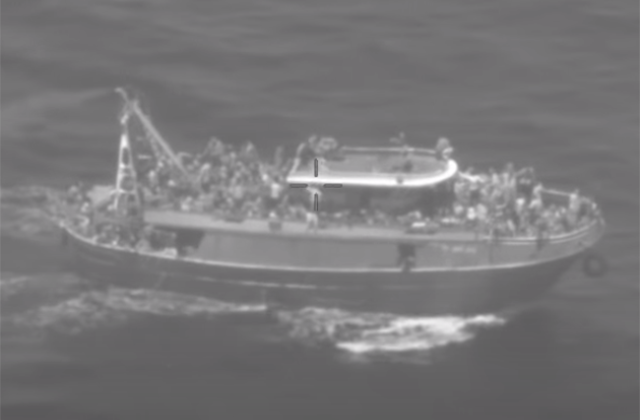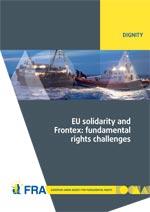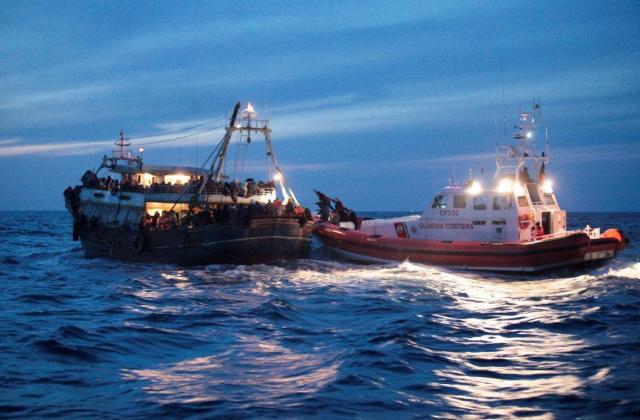
Fundamental rights at Europe’s southern sea borders - Summary
By mapping the fundamental rights challenges at Europe’s southern sea borders and by identifying promising practices, this report is intended to offer advice to EU policy makers as well as practitioners at both the EU and Member State level.
Each year, hundreds of men, women and children board overcrowded and ill-equipped boats in an attempt to reach Europe. They may be fleeing violence and persecution or seeking improved opportunities for themselves and their families. Many do not survive the trip, never reaching their destination, as documented by media headlines and substantiated by several reports. Others are intercepted and turned back. Those who do make it may be detained until their legal status is clarified.
This phenomenon began in the late 1980s, when European countries tightened immigration policies, making it more difficult to enter such countries in a regular way. In 1999, Article 1 (5) of the Treaty of Amsterdam established the European Union (EU) area of freedom, security and justice. Since then, the EU has elaborated common rules on border management and also offered, through Frontex, operational support to EU Member States. Prevention of irregular migration, cooperation with third countries to combat human smuggling and facilitate readmissions, while addressing the humanitarian needs of those who have reached European soil, have guided recent EU policies in this domain.
This publication contains the main conclusions of the FRA report on Fundamental rights at Europe’s southern sea borders, covering sea border surveillance and disembarkation procedures, as well as general issues such as training of border guards. It is the result of a FRA project on the treatment of third-country nationals at the EU’s external borders, which was part of FRA’s 2010–2012 work programmes.
The report is based on socio-legal research. A review of the domestic, EU and international legal and policy framework has been complemented by desk research and primary data collection in five EU Member States (Cyprus, Greece, Italy, Malta and Spain), as well as in three third countries (Morocco, Tunisia and Turkey). Primary data collection consisted of 280 in-depth interviews carried out in the summer and autumn of 2011 with migrants, national authorities, fi shermen, shipmasters and civil society organisations dealing with sea arrivals. The research aimed to interview those with recent as well as less recent experiences of crossing in order to assess developments over time. In addition to the interviews, non-participatory observation was used to examine the daily routine of border surveillance at points of arrival. The FRA also sent out a questionnaire on land-based surveillance systems to three EU Member States. Preliminary results of this research were discussed with national stakeholders during four meetings organised in Athens, Madrid, Malta and Rome in November and December 2011.
The field research was carried out in 2011, which turned out to be an exceptional year for the central Mediterranean, as events in Libya and Tunisia pushed up the numbers of arrivals, particularly to Lampedusa.
Frontex assisted FRA in obtaining access to relevant officers and provided information as regards Frontex-coordinated joint operations. The FRA visited two of these operations in the summer of 2011: Poseidon Sea in Greece and Indalo in Spain, where it observed maritime patrols.
The report does not describe the situation of migrants arriving at border crossing points in ports, whether they are documented or not. Therefore, persons arriving at a port by ferry but lacking the necessary entry documents are not covered. Neither does it deal with the issue of stowaways, namely migrants who clandestinely board a vessel and lack the appropriate papers allowing disembarkation once the vessel reaches a port.
With its findings, this report intends to contribute to the discussion on finding solutions to a disquieting phenomenon. It also highlights a number of concrete measures that the EU and its Member States can take to address specific shortcomings identified by this research. FRA believes, however, that only a comprehensive approach including all states, organisations and other parties involved can succeed in putting an end to the high death toll at sea.




